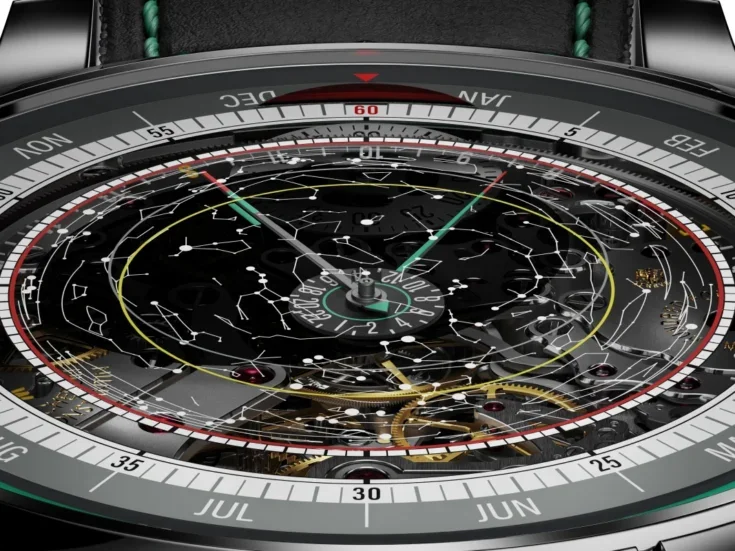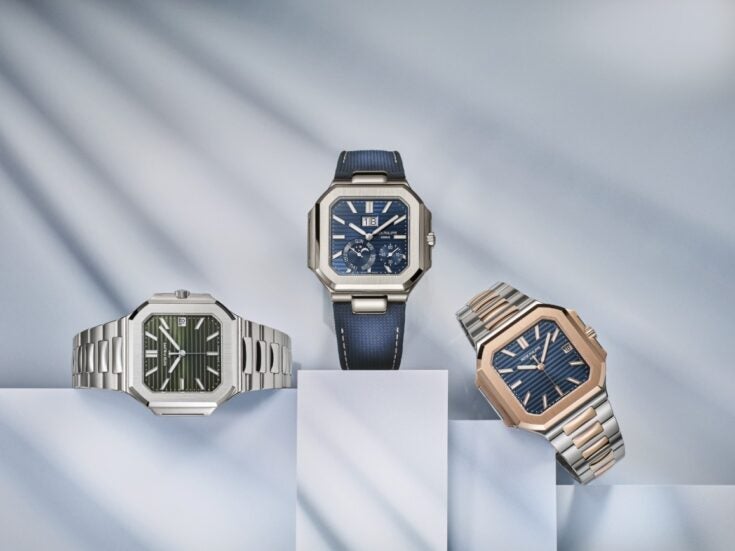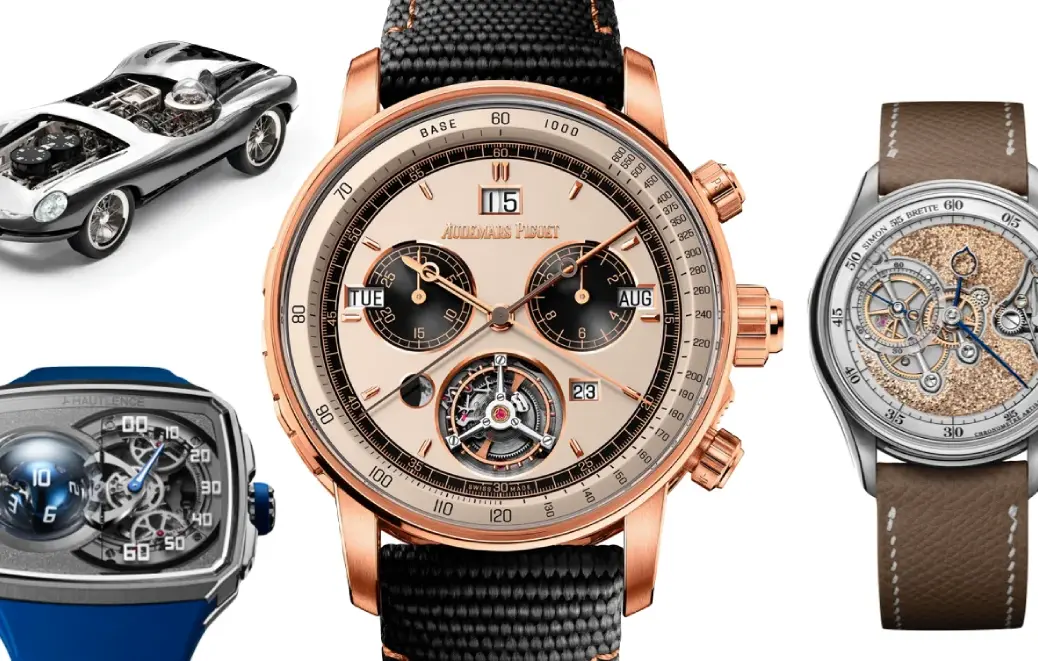
Last night, the great and the good of the watchmaking world gathered in the horologically-obsessed city of Geneva for the 2023 Grand Prix d’Horlogerie (GPHG) awards ceremony.
One of the most important global events in the world of watchmaking, the ‘Grand Prix d’Horlogerie de Genève’ awards have celebrated craftsmanship, innovation and artistry since the event was first held in 2001.
The ceremony, which was organised by the Canton and City of Geneva and held at the city’s Théâtre du Léman, saw a host of CEOs from different timepiece-makers take to the red carpet, including Jean-Christophe Babin of Bulgari and Mike France of British manufacturer Christopher Ward.
Spear’s columnist Nicholas Foulkes headed up the 2023 jury, with 19 award winners chosen from a selection of 90 nominees. Audemars Piguet was honoured with the prestigious ‘Aiguille d’Or’ prize for its technically-demanding Code 11.59 timepiece, while Piaget walked away with prizes in two of the main categories.
Hotly-contested and a justly desirable accolade for any watchmaker, last night’s ‘Oscars of watchmaking’ saw some remarkable winners:
Sports Watch Prize: Tudor Pelagos 39
Ever since the release of the Black Bay in 2012, the modern-day Tudor brand has been powered by crowd-pleasing diving watches. With a titanium construction, COSC-certified movement and reduced proportions, the Pelagos 39 is a glimpse into the future of the Rolex offspring.
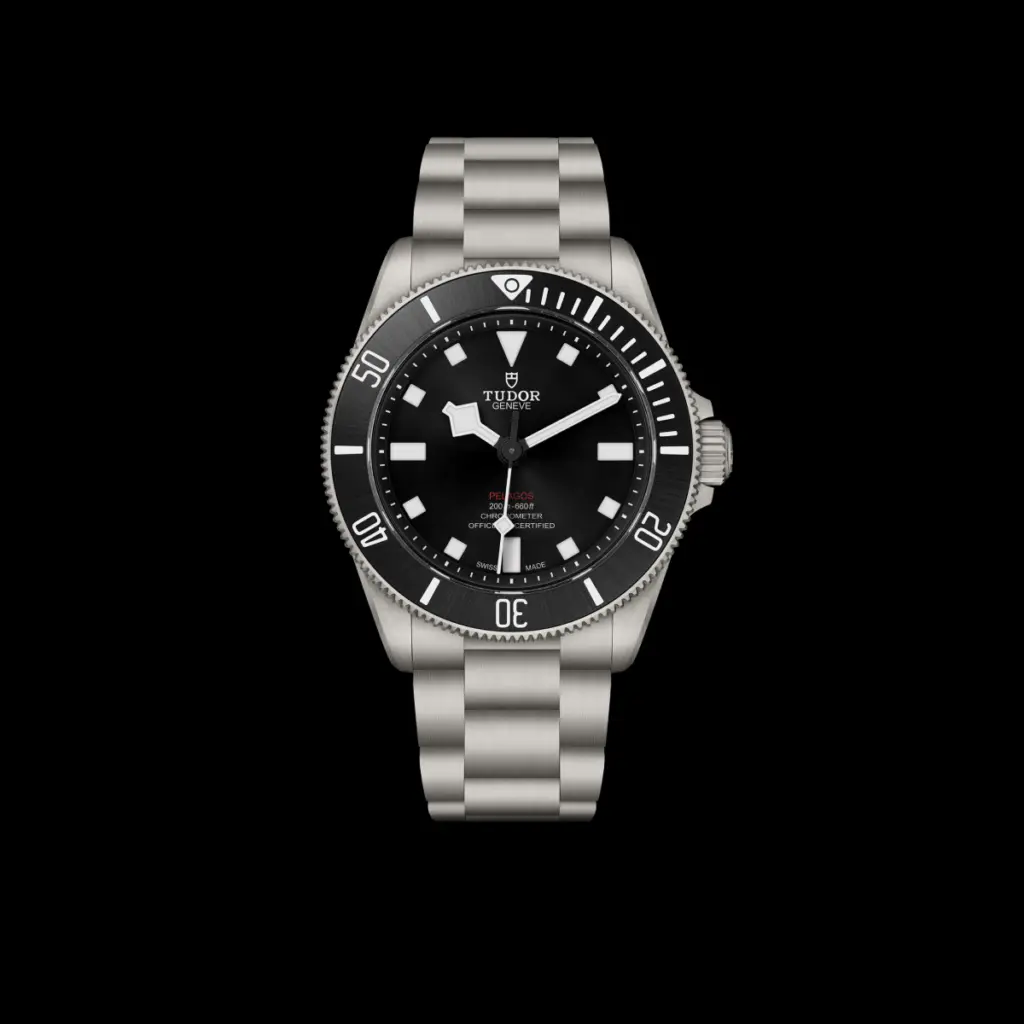
[See also: The evolution of Blanc Pain’s Fifty Fathoms dive watch]
‘Petite Aiguille’ Prize: Christopher Ward London, C1 Bel Canto
As the first of two categories where retail prices were considered by the jury, the ‘Petite Aiguille’ winner must have a price point between CHF 3,500 and CHF 10,000. Christopher Ward’s elegant Bel Canto timepiece emerged as the recipient.
Featuring a Sonnerie au Passage complication, the watch reimagines its proprietary jump hour calibre to sound on the hour, every hour—a deserved winner for bringing a chiming complication to the approachable end of horology.
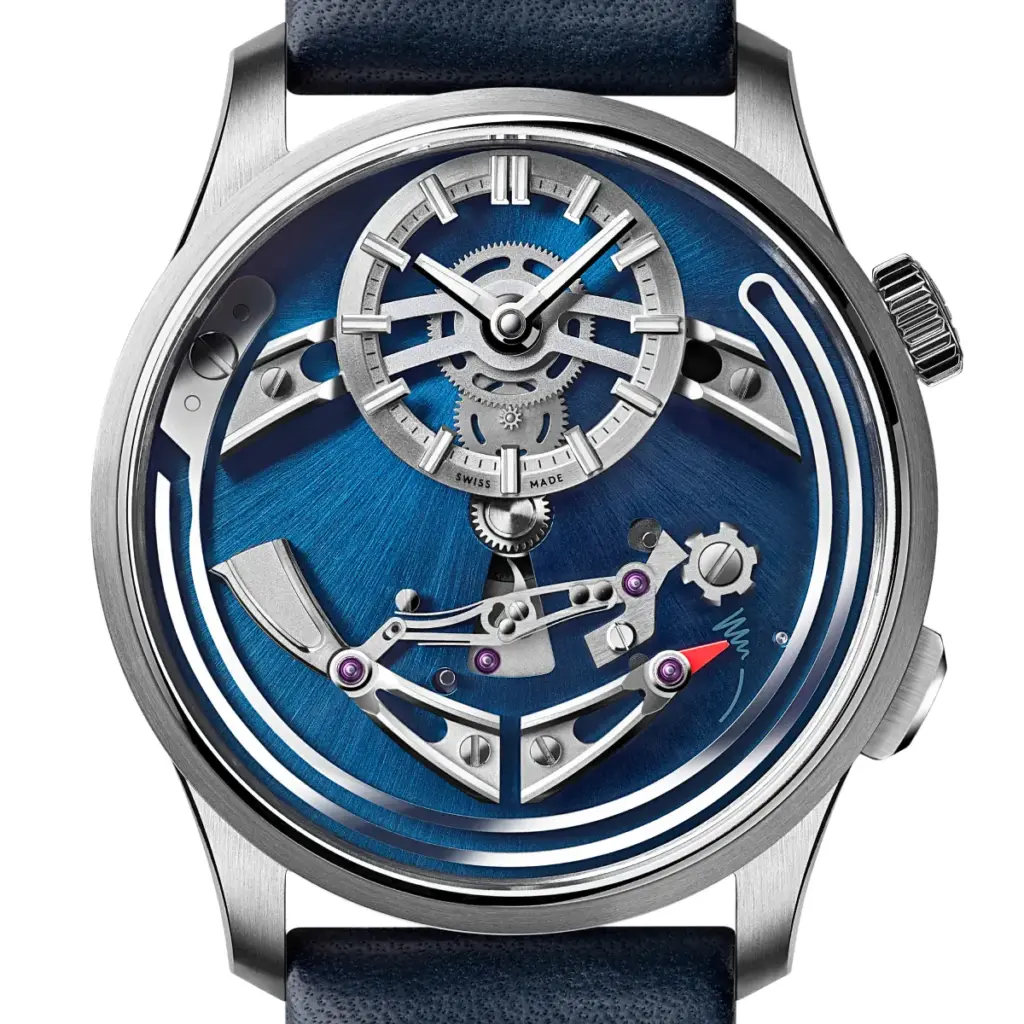
[See also: The independent watchmakers you need to know about]
Challenge Prize: Raymond Weil, Millésime automatic small seconds
In a highly competitive category where the nominee’s retail prices must either equal or fall under CHF 3,500, Raymond Weil’s Millésime was recognised with the esteemed ‘Challenge’ prize on the evening.
Beautifully monochromatic with respectful touches of traditional styling, the Millésime was arguably the quietest of the nominated pieces, but a deserving winner nevertheless. The Challenge category continues to prove something many of us within the industry think daily: price points do not dictate compelling watchmaking.
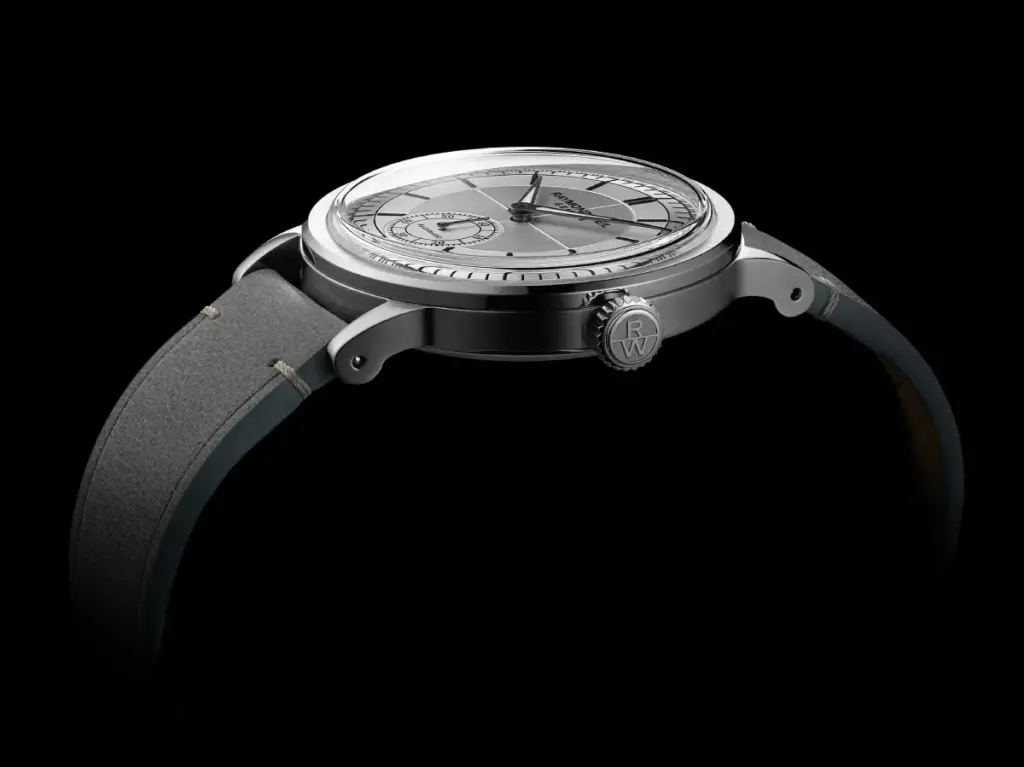
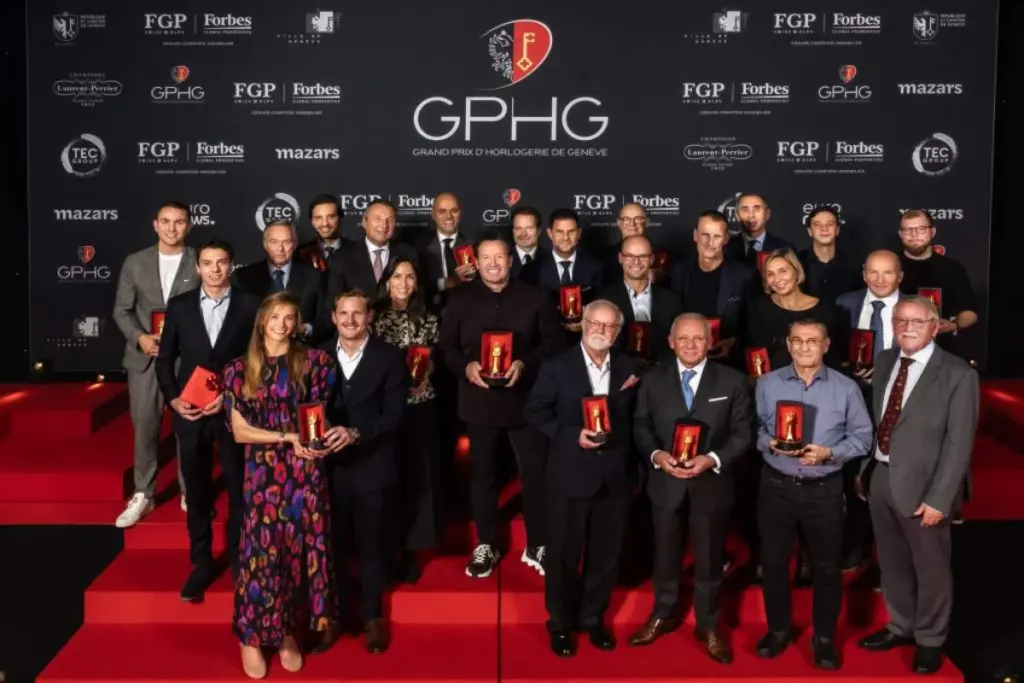
Iconic Prize: Ulysse Nardin, Freak One
Always a category ripe for debate, the Iconic Watch Prize winner was the Ulysse Nardin Freak One. Frequently viewed as a visionary innovator of avante-garde technicality, the Freak One connects to the model’s inception with a hand, dial and crownless execution.
The entire movement rotates, with its gear train and escapement serving as the minute and hour hands. Its departure from convention is both advanced and bold, making the Freak One a deserved winner of the Iconic Prize.
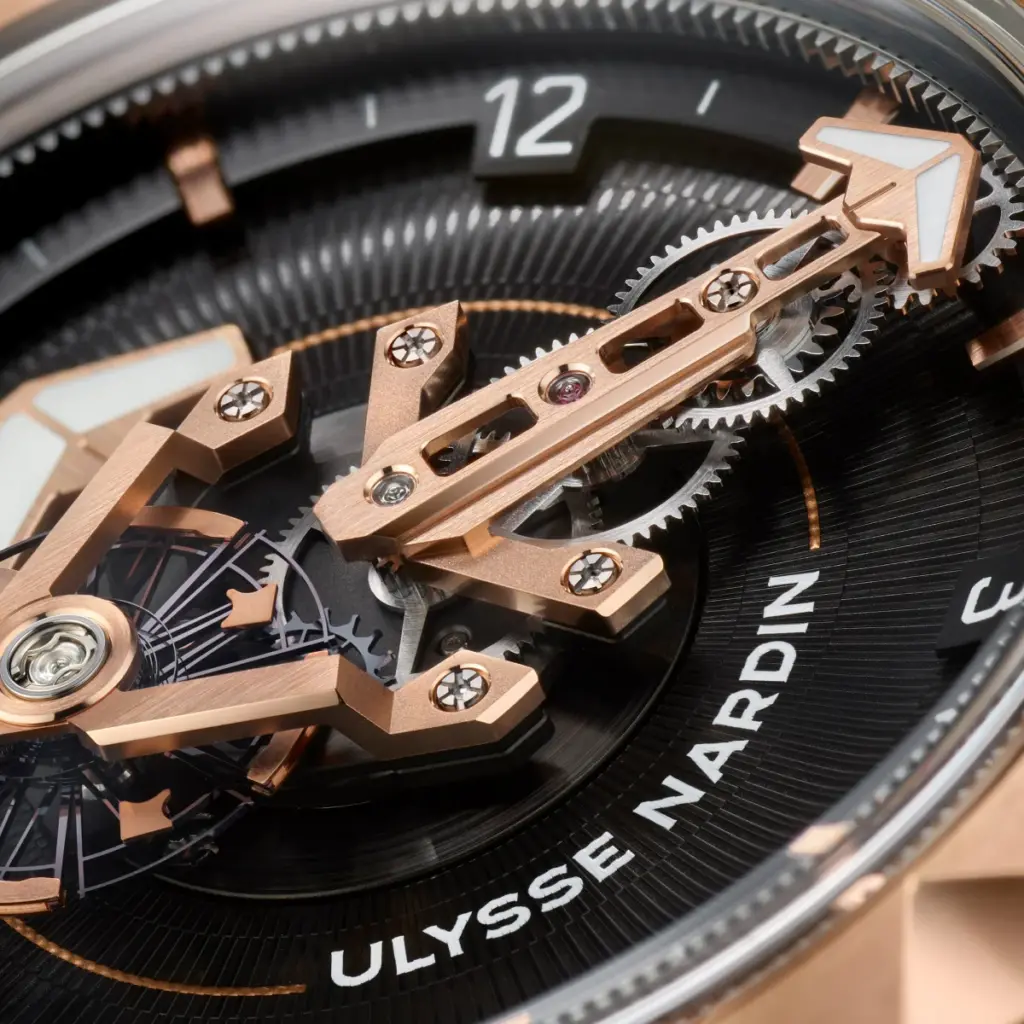
[See also: Has Nicholas Foulkes finally realised his brand ambassador ambitions?]
Chronograph Prize: Petermann Bédat, Chronographe rattrapante
With a split-second mechanism operated through a mono-pusher, a jumping minute counter, and a mastery of the ‘old meets new’ visual language, it’s no wonder the Petermann Bédat Chronographe Rattrapante walked away with the Chronograph prize.
As one of the most talked about independent watchmakers of late, many anticipated a win for Bédat, even within a highly-competitive field.
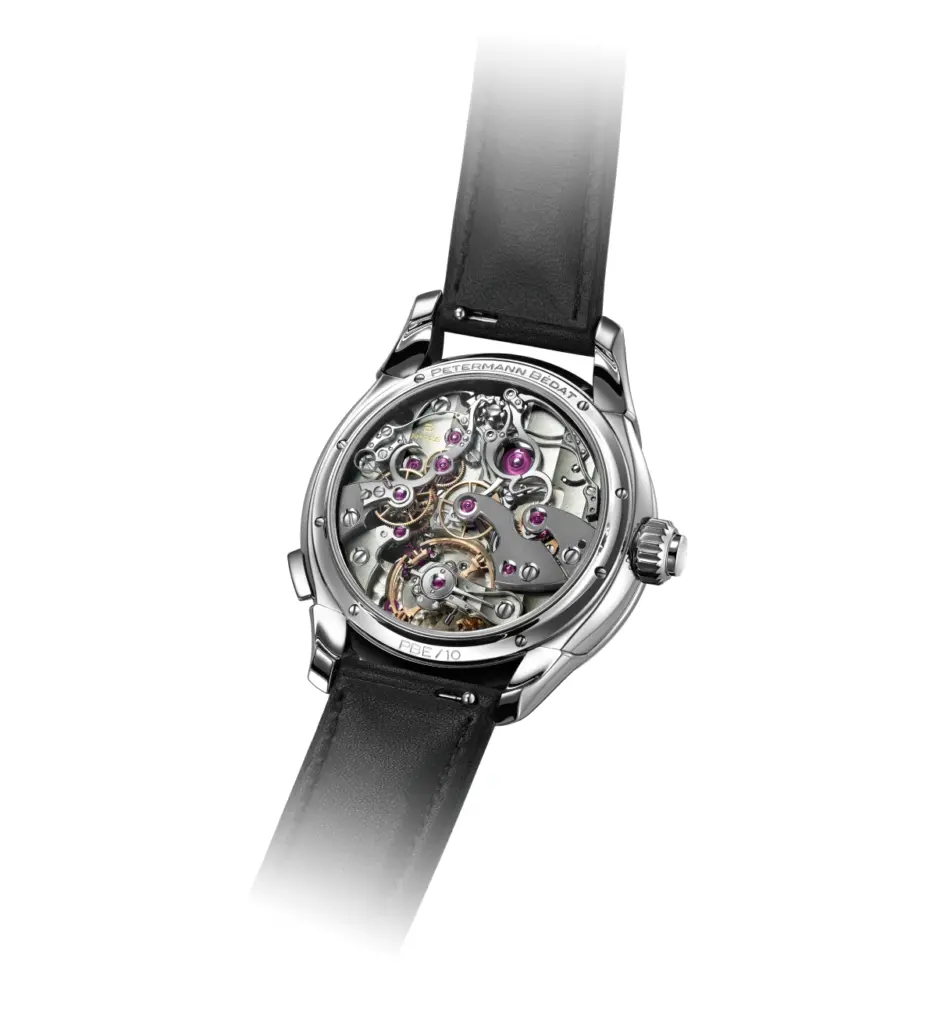
Ladies’ Watch Prize: Piaget, Hidden Treasures
The first of two categories reserved for more conventionally feminine watches, the Ladies Watch Prize for 2023 belongs to Piaget for their Hidden Treasures.
Reviving the iconic cuff watches of the 1960s and 1970s, Piaget has followed an organic design. Hand engravings with nuanced tree bark-like patterns showcase their expertise in Métiers d’Or. The dial also recalls Piaget’s colourful stone dials of the late 20th century.
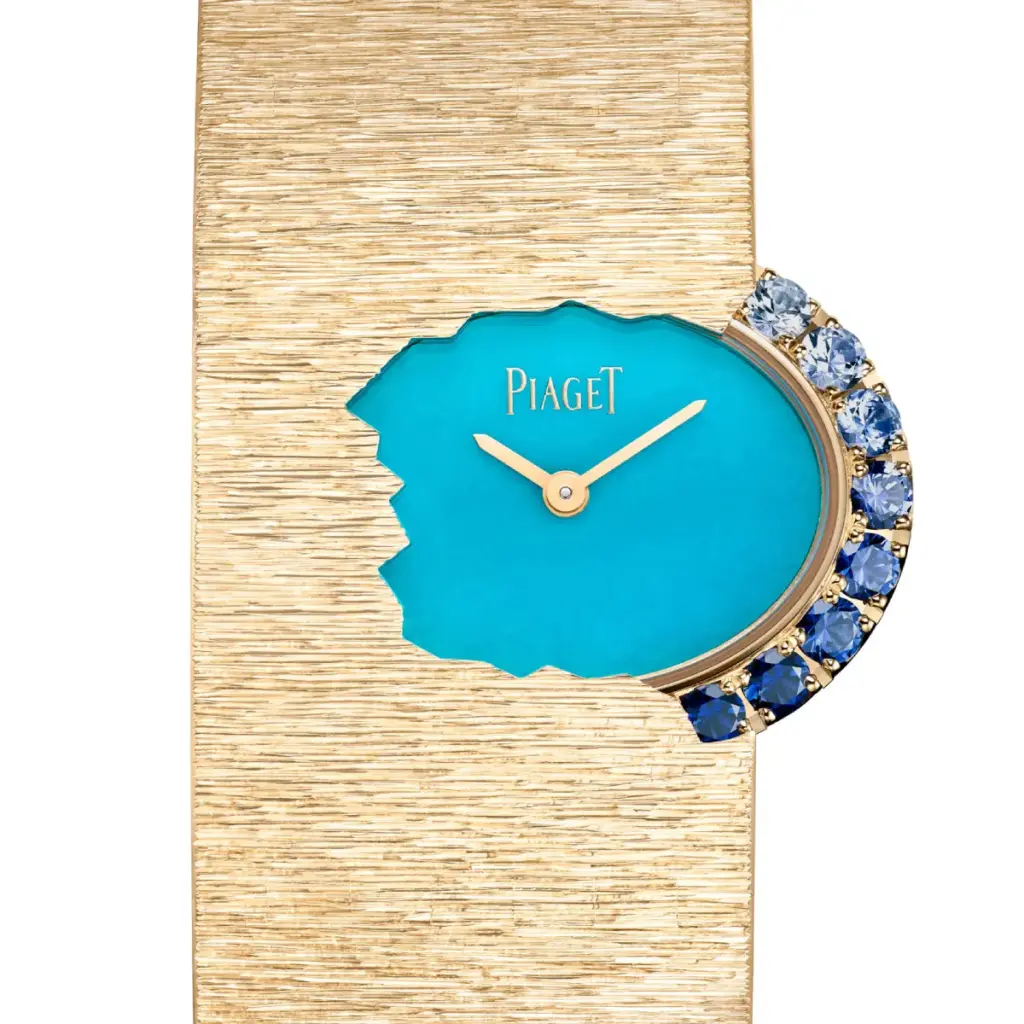
Ladies’ Complication Prize: Dior Montres, Grand Soir Automate Etoile de Monsieur Dior
The mastery of complications can span a wide array of purposes. The Dior Grand Soir Automate Etoile de Monsieur Dior, which took home the Ladies’ Complication Watch Prize, used watchmaking technicalities to tell a story.
This creative complication is a mechanical automaton, which depicts the founding story of the House of Dior with sliding stars upon engagement of the monopusher.
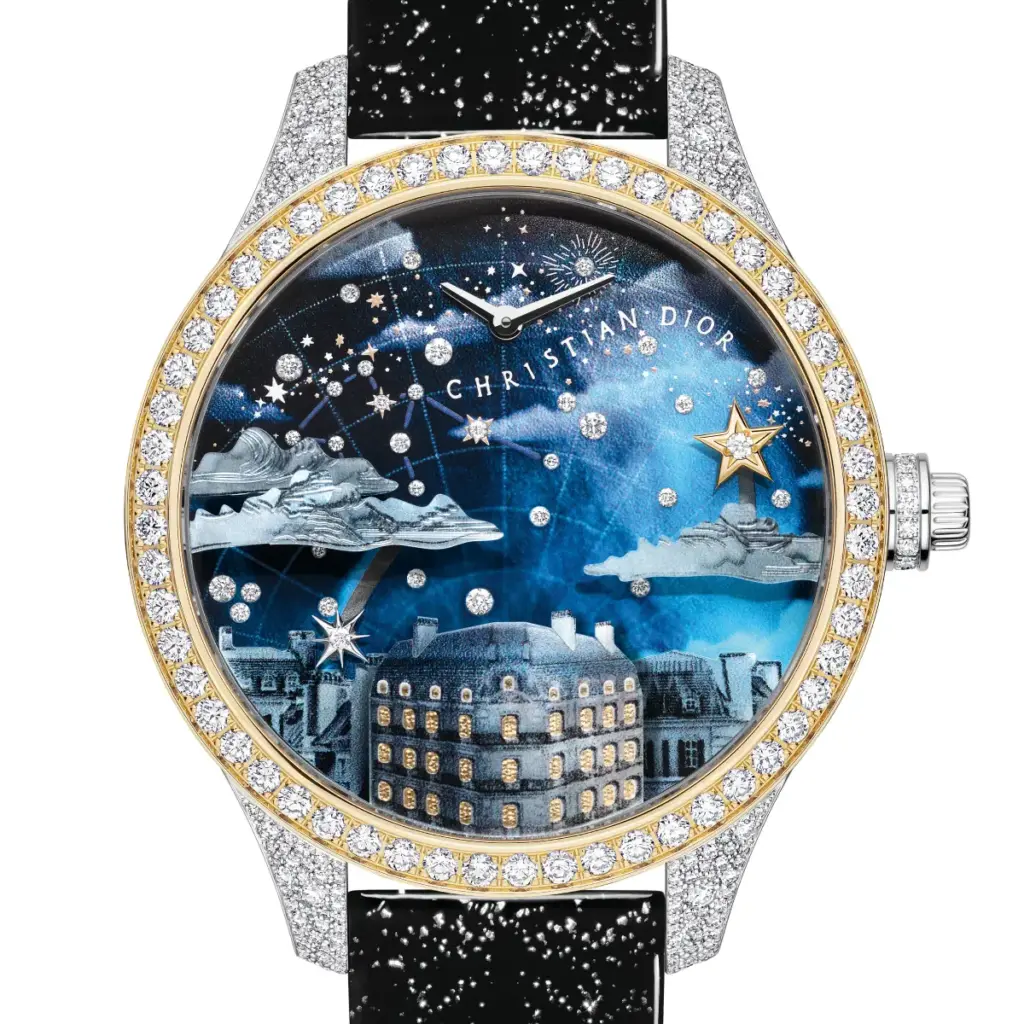
[See also: The best luxury gifts for her in 2023]
Jewellery Prize: Bulgari, Serpenti Cleopatra
As the only prize dedicated to stones and gemsetting, the ‘Jewellery’ category puts aside the art of technical watchmaking.
The Bulgari Serpenti Cleopatra was crowned this year’s winner, featuring topaz, rubellites, tanzanites, amethysts, and diamonds. It recalls the Roman Maison’s iconic Serpenti cuff, while simultaneously conveying the story of Cleopatra’s affection for wearing jewels and the city of Rome itself.
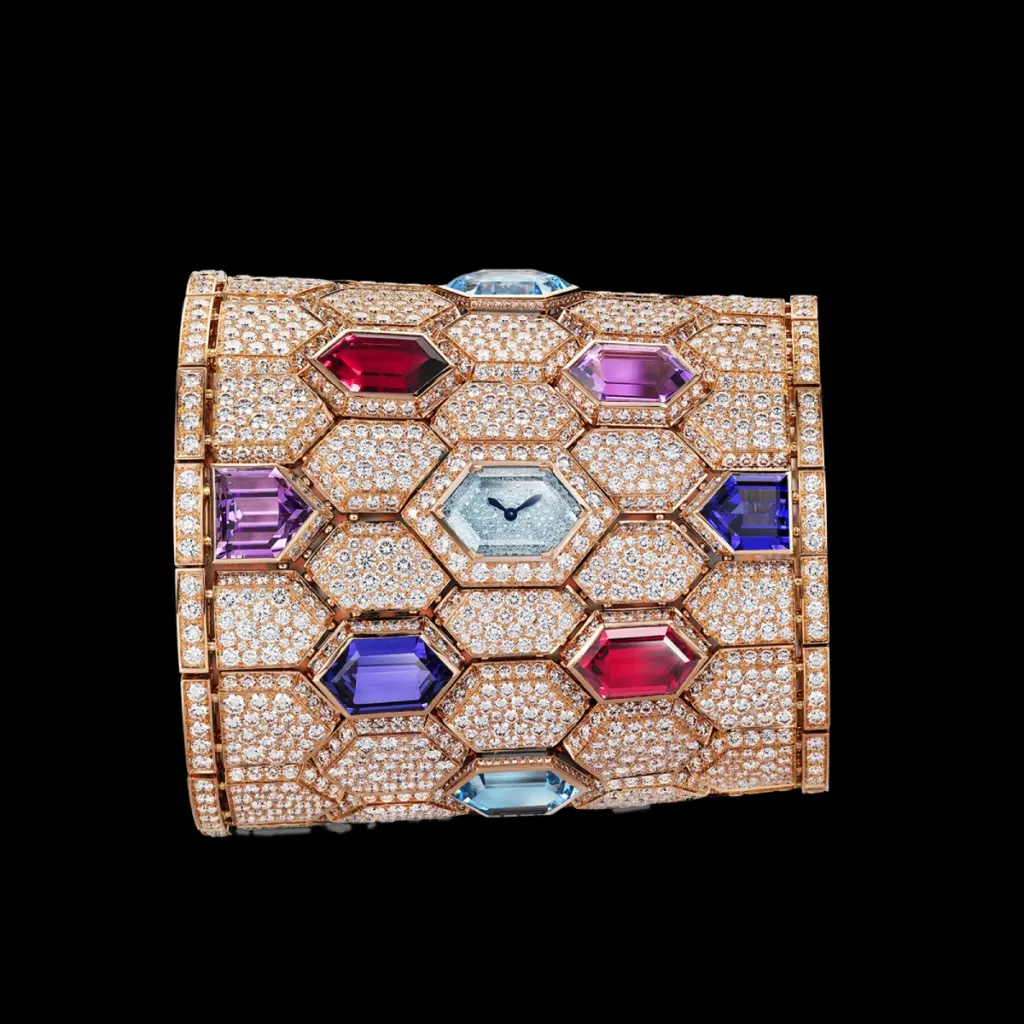
Artistic Crafts Prize: Piaget, Altiplano Métiers d’Art – Undulata
Watchmaking curiously mirrors the artistic world, and Piaget’s winning Altiplano Métiers d’Art – Undulata is why. Phenomenally evocative, this watch has several abstract layers of wood, straw and leather hand-applied to the dial.
This win marks the second of the night for Piaget, further cementing the shared view of their renewed potential for the future.
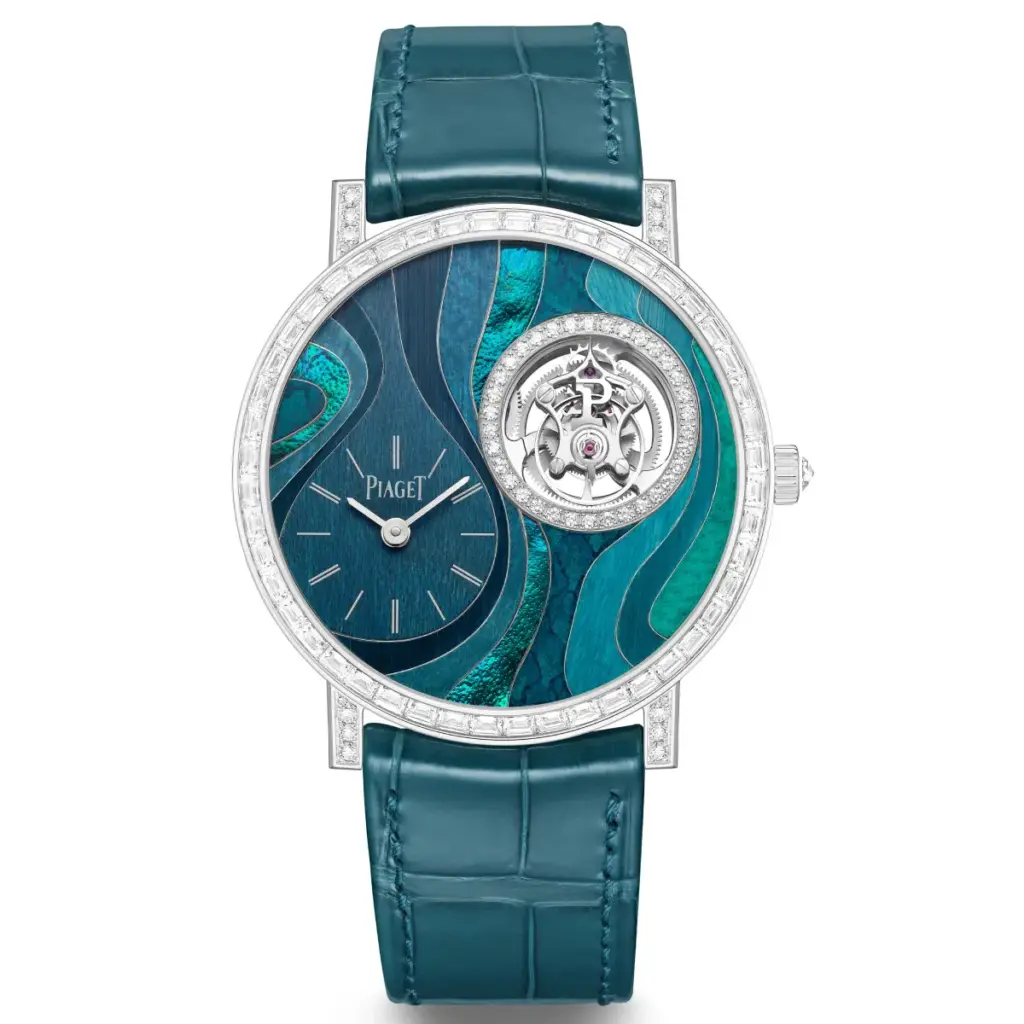
Men’s Complication Prize: Voutilainen, Worldtimer
While remaining a distinctive Voutilainen creation due to its hand guilloché dial work, the Worldtimer from the eponymous Kari Voutilainen stood out among the nominees in the Men’s Complication Prize category.
Its cushion-style case and execution of a historically-significant complication made Kari’s expression of a Worldtimer a welcome surprise for the jury.
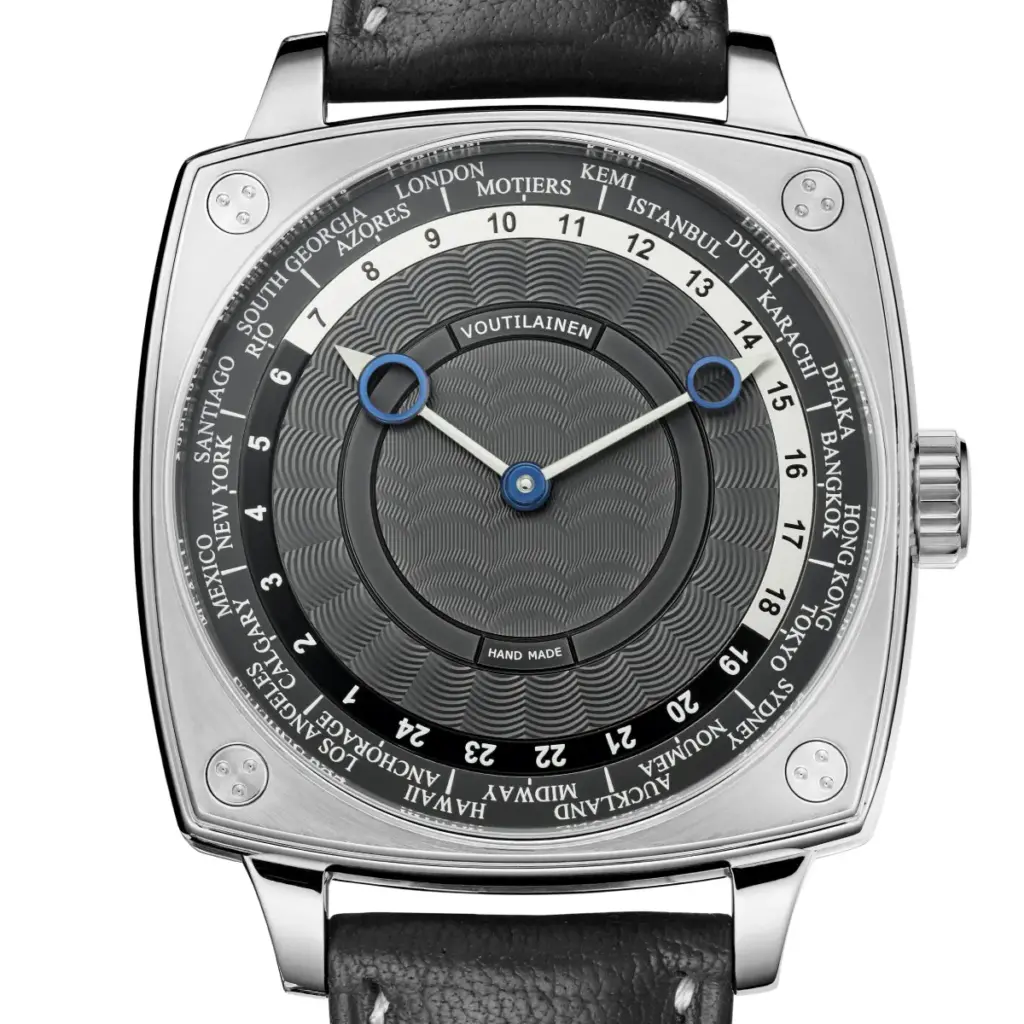
[See also: $44 million Bleu Royal diamond is most expensive jewel sold at auction in 2023]
Calendar and Astronomy Prize: Bovet 1822, Récital 20 Astérium
Perhaps the singular category shrouded in wonder, Bovet stepped onto the stage to accept the ‘Calendar and Astronomy’ prize. Naturally filled with technique, proficiency and function, the winning Récital 20 Astérium packs celestial indicators, a triple-function hour hand indicating time, pointing north, and the night sky, all exquisitely finished. Amazingly, with ten days of autonomy, this level of craft is habitual from Bovet.
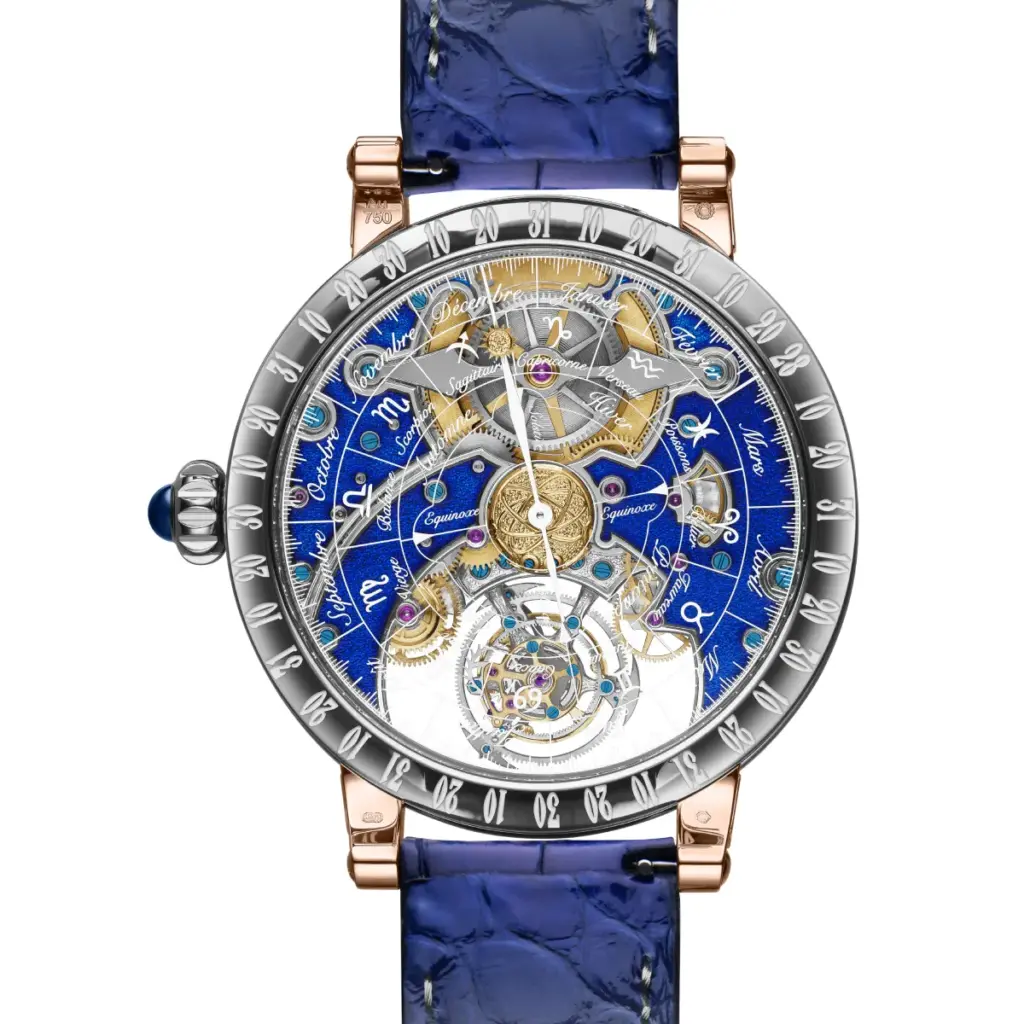
Tourbillon Prize: Laurent Ferrier, Grand Sport Tourbillon Pursuit
Over 200 years after the complication’s inception, Laurent Ferrier was bestowed the ‘Tourbillon’ prize for its Grand Sport Tourbillon Pursuit. The salmon dial recalls the sky at dawn, and the titanium integrated bracelet sports watch is truly distinctive, as it was the only nominated watch not to display its tourbillon dial side.
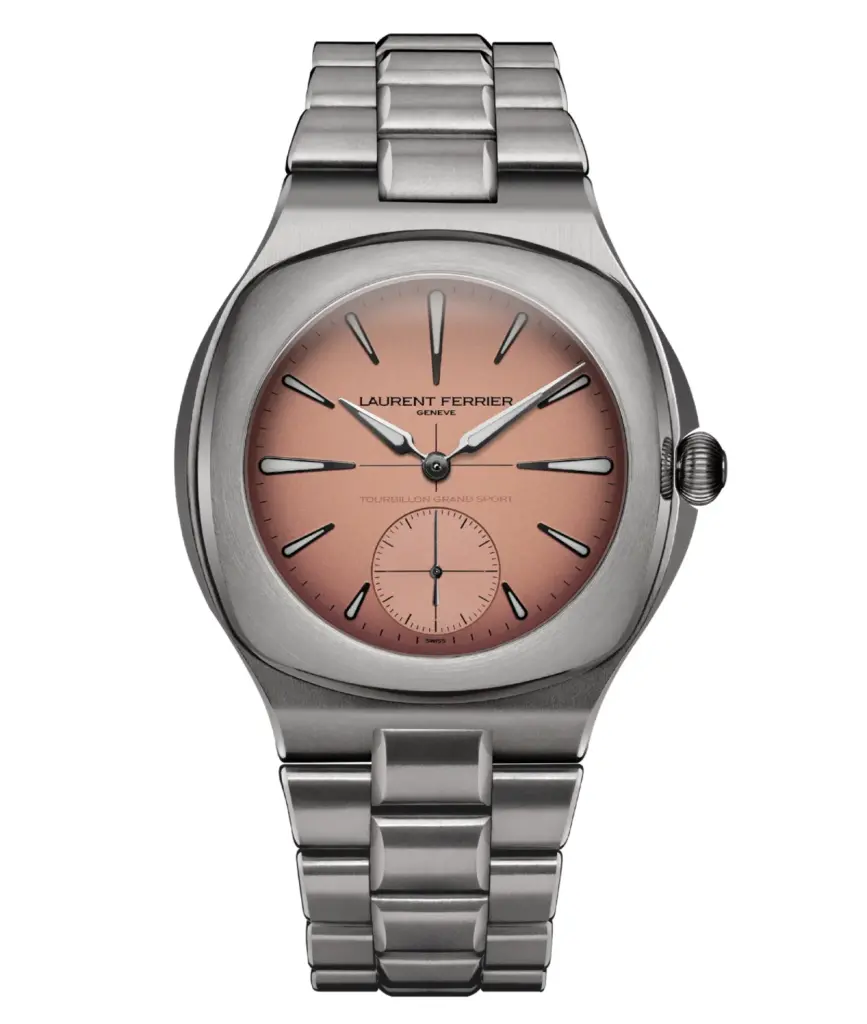
Mechanical Clock Prize: L’Epée 1839, Time Fast II Chrome
Taking a break from wristwatches, the L’Epée 1839’s Time Fast II Chrome took home last night’s Mechanical Clock prize. A far cry from the grandfather clocks of our ancestors, the Time Fast II is based upon 1960s sports cars and features two movements: one for timekeeping, one for the ‘engine’. It even sports a functional gear stick that shifts between winding the time movement with the rear wheels, winding the piston movement, and neutral.
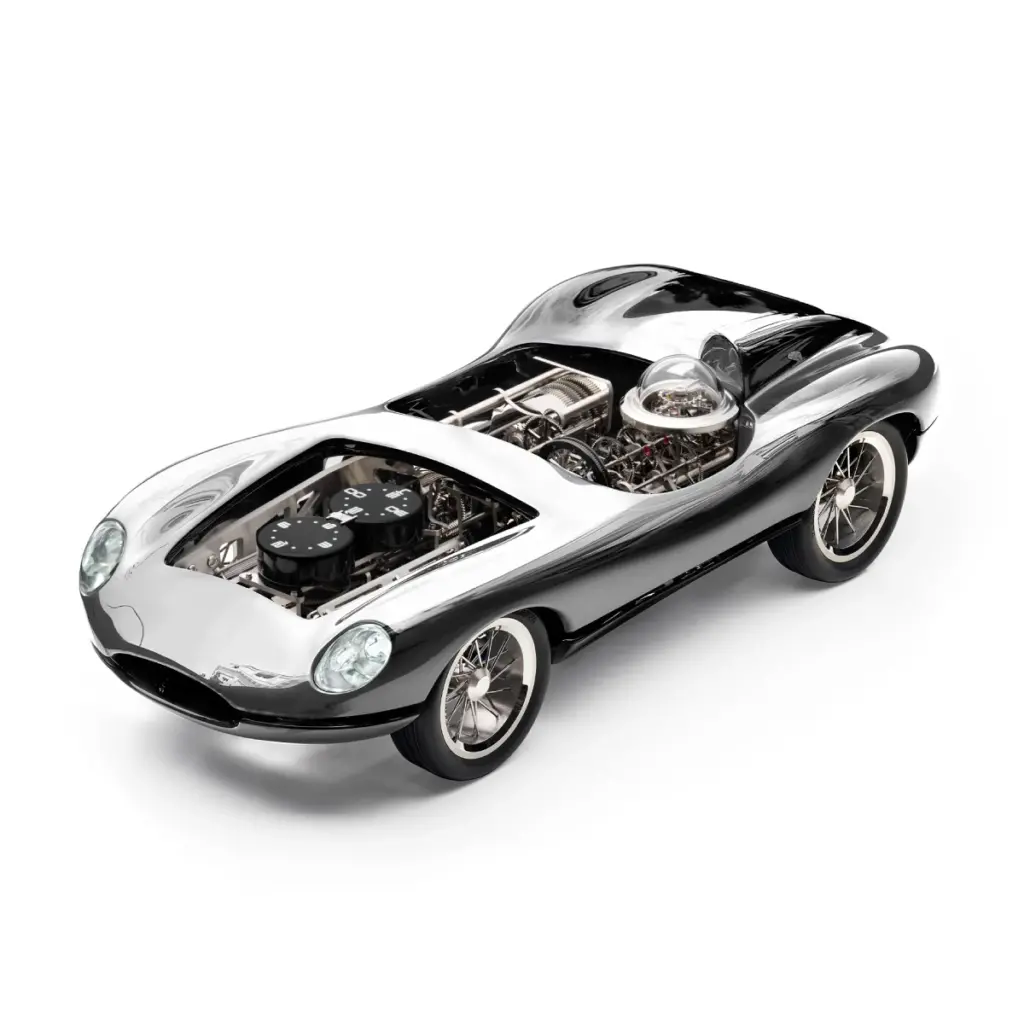
Men’s Prize: Simon Brette, Chronomètre Artisans
This year saw a Men’s category dominated by independents of varying yearly production numbers, but one Simon Brette earned the coveted accolade.
Having debuted his brand via a traditional subscription method, the winning Chronomètre Artisans is an outstanding instance of true heritage honouring innovation, with the jury praising it for its perfect finishing on the front and back of the piece.
Innovation Prize: Hautlence, Sphere Series 1
The first of two awards that embody the distinction the GPHG stands for, Hautlence won the Innovation category with its Sphere Series 1. Nominees require a special mechanism in the form of either a display, acoustic function, mechanical wonder or an original concept.
With its evolutionary advancement of the jump hour, the Sphere Series 1 has a three-dimensional spinning sphere and a vertical retrograde minute counter. The gearing of the calibre is also exposed, further playing into its dynamism.
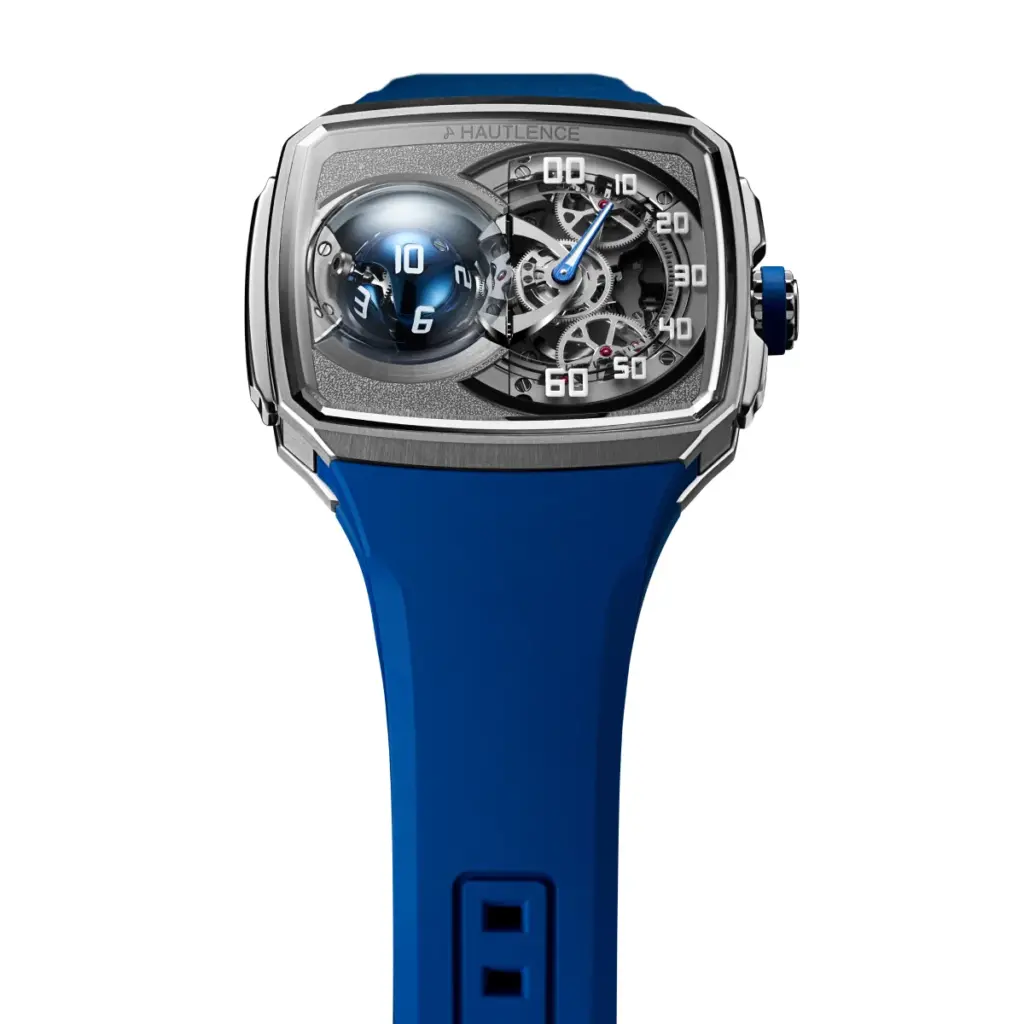
The GPHG Awards’ prestigious ‘Aiguille d’Or Prize’: Audemars Piguet, Code 11.59
Perhaps the most coveted award of the evening, the ‘Aiguille d’Or prize’ is presented to the ‘best overall timepiece among all categories’. This year, Audemars Piguet came out on top for its Code 11.59 Ultra-Complication Universelle RD#4.
Part of a collection launched just four years ago, the gold-lined Code 11.59 is one of the most complex wristwatches ever produced by the house. It has 40 functions, 23 complications and proportions of just 42mm by 15.5mm thick.
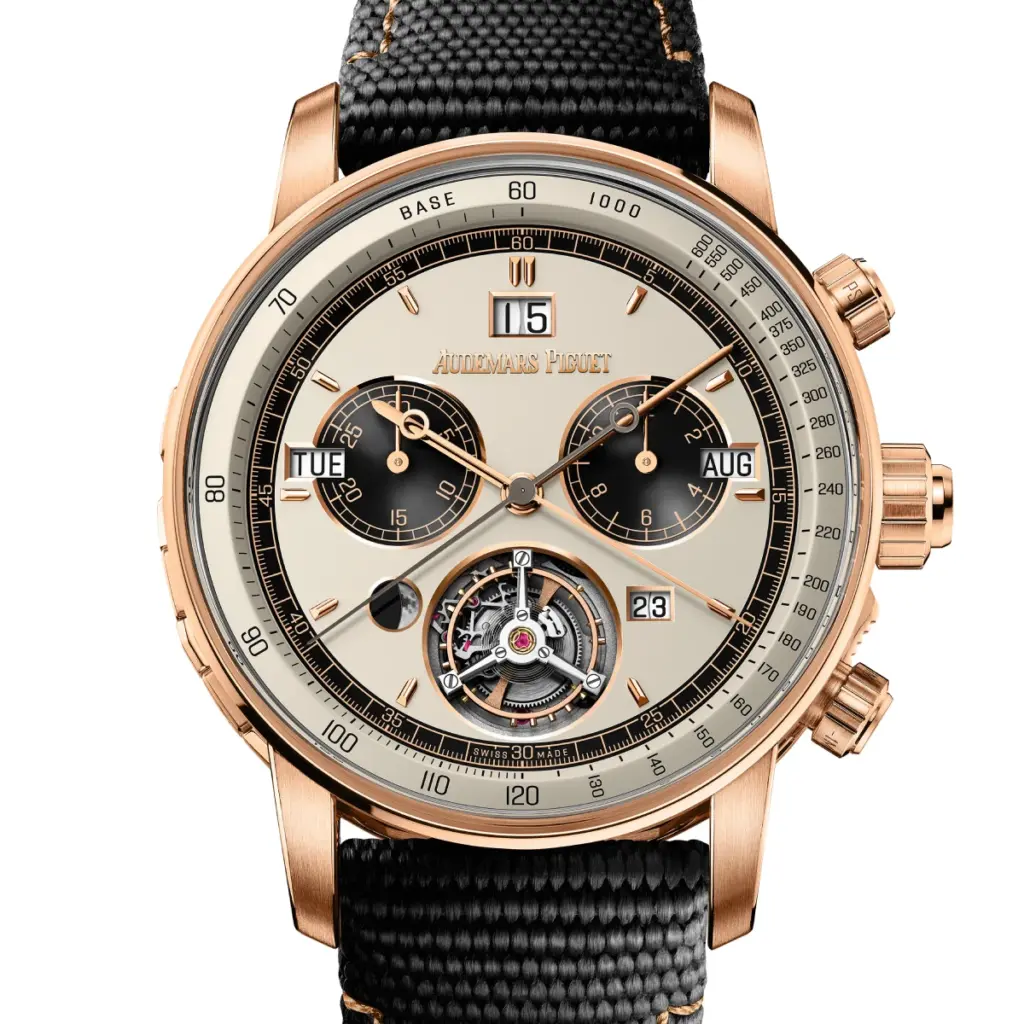
Other noteworthy winners were the Ferdinand Berthoud Chronomètre FB 3SPC for the Chronometry Prize, and Maison Alcée Persée Azur for the Audacity prize. The Special Jury Prize, meanwhile, went to Svend Andersen and Vincent Calabrese of AHCI.


